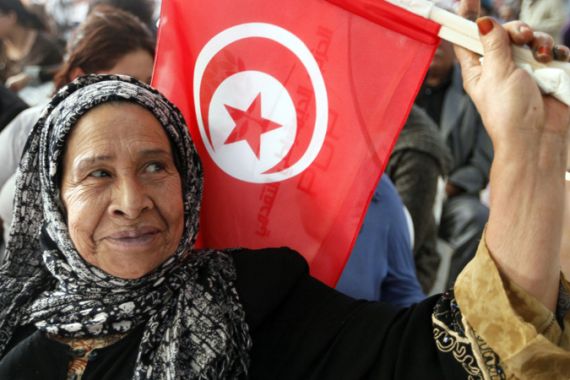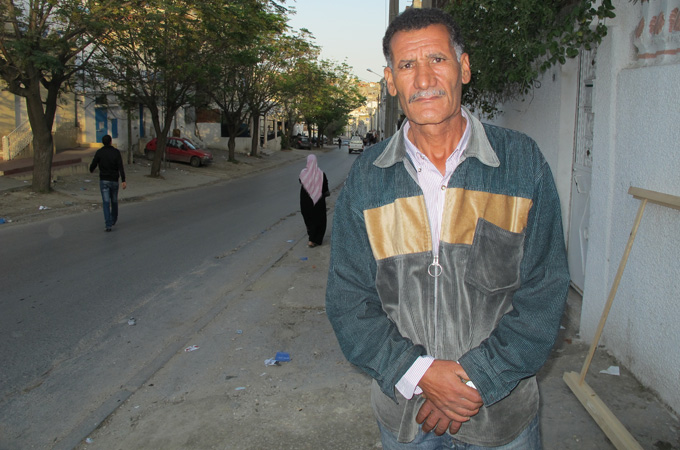Tunisia to vote amid dwindling hope
Vote on Sunday to chart country’s future, but many say life has got difficult since longtime ruler was toppled.

TUNIS, Tunisia – Nine months after a popular uprising that ended decades of authoritarian rule, Tunisians are set to vote for new leaders who will write the rules of the country’s new political system.
For many Tunisians who braved bullets while fighting to end Zine El Abidine Ben Ali’s presidency, politicians have moved in to claim the fruits of the rebellion with little regard for the very people who paved the way for political change.
The swelling frustration is best showcased by seven young men who have been on a hunger strike since Wednesday, protesting against what they say is the interim government’s failure to take care of their basic health needs.
All of them were shot by security forces as they protested peacefully in the days immediately before Ben Ali fled to Saudi Arabia.
On Saturday, as political parties wrapped up their campaigns for Sunday’s vote, the men still nursing their wounds stepped up their protest, cutting off their consumption of water.
Sit-in in Kasbah
They staged a sit-in in the Kasbah, near the office of Beji Caid Essebsi, the interim prime minister, to demand immediate medical treatment. Another 10 injured men travelled to Tunis from Kasserine and Thala to join them
Leila el-Arbi, whose son Rachid el-Arbi is one of those taking part in the hunger strike, said politicians have ignored the plight of the injured.
Rachid has been paralysed from the waist down since he was shot on January 13 in his upper chest, and his body is covered in bedsores. She will not be voting on Sunday.
“Who would I vote for?” she said.
Tarek Dziri, from the town of Fahs, came to the capital to join the protest.
Dziri, who has been confined to a wheelchair since receiving two bullets on January 12, agrees their needs have been overlooked by both the members of the interim government and the political parties running for election.
But unlike many of the other protesters, he will vote on Sunday, for an independent list not linked to any of the major parties.
“I hope Tunisia will change in the future,” he said.
Tunisia’s uprising began in marginalised communities before it became a nationwide phenomenon. Most of those who were injured when police began using live bullets are from poor families, which are struggling to bear the costs of medicine and treatment for their loved ones.
Many still carry bullets inside their bodies, and are unable to afford the operations needed to remove them – some of which are urgent.
Economic hardships
The uprising also led to the deaths of at least 219 people when security forces opened fire.
Others were more hopeful that political parties would deliver on their promises to tackle social and economic problems.
While much of the media attention has focused on the political divide between those who want to ensure religion and politics are kept separate, and those who want Islam to play a bigger role in public life, many voters Al Jazeera has spoken with throughout the month of October identified job creation as their leading concern.
 |
| Ezeddinne Amdoun [Yasmine Ryan/Al Jazeera] |
In Jebel Lahmar, a poor suburb to the northwest of Tunis with a high rate of homelessness and crime, hope was scarce.
Ezeddinne Amdoun, a builder who has been unemployed for several years, said his life has become more difficult since the uprising because of price rise and food shortages.
“For now, nothing has changed, maybe it’s even worse than before,” he said.
Tunisia has indeed been facing severe shortages in milk and bottled water in recent weeks.
Chiheb Ben Ameur, who operates a small iron works with his brother, agrees things are harder since January. All of their employees have quit to seek higher wages in neighbouring Libya in recent weeks, and the price of raw commodities has risen.